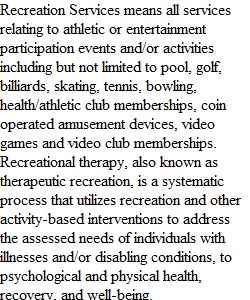


Q Week One and Two Discussion Questions Discussion Questions: Please answer all questions in detail; typed, and uploaded. • What is the difference between recreation and therapeutic recreation services? What makes therapeutic recreation unique? • What are the four service components used in a comprehensive therapeutic recreation service and what relationship do they have to outcome goals? • Identify the difference among; o Clinical o Custodial o Community-Based o Educational, and o Milieu Service Delivery Systems What are the implications for therapeutic recreation services in each system? • What events led to the development of the American Therapeutic Recreation Association? What are the mission and purpose and how does it differ from NTRS? • What is the role and purpose of the National Council for Therapeutic Recreation Certification? What is the history and what is it’s significance in the therapeutic recreation profession? • Given your understanding of the history of therapeutic recreation, what factors will contribute to the development of future philosophical perspectives?
View Related Questions